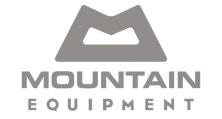Tracking
the Journey
-
Distance to go:
0 Mi
Distance
Ben and Tarka will cover 1800 miles starting from Scott's Terra Nova Hut at the edge of Antarctica to the South Pole and back to the coast again. That's equivalent to 69 back-to-back marathons hauling up to 200kg each (the weight of roughly two adult men) of kit and supplies necessary to survive.
Distances here are shown in statute miles.
Resupply (Day 70)

I'm sorry to have kept you waiting for this update; you might have seen from the tracker that we haven't moved for a while, and you may be wondering what's up. For more than a decade I've been trying to get to the start line of this expedition, and for more than a decade I've been talking about how it would be a journey that was at the very limits of human endurance. Today, in hindsight, I wonder if I really appreciated how prescient and accurate that glib statement was, and yet how little I knew about where that journey would lead me, and what it would take for Tarka and me to dig so deep.
Part of the appeal of this expedition to me was that it seemed just about possible. Roger Mear, one of Robert Swan's team that completed Scott's one-way journey to the Pole in the mid-eighties said they didn't entertain the thought of unsupported return journey as it was plainly "impossible" to haul enough food and fuel. Both Scott and Shackleton, of course, had pre-positioned depots the year before their Pole attempts, and then had further teams hauling provisions for them all the way to the Plateau, peeling away one by one like booster rockets falling back to earth. Scott himself didn't put his own sledge harness on until he got to the base of the Beardmore Glacier, and at most his men pulled just over 90kg each.
By contrast, Tarka and I pulled 200kg each at the start, heavier loads per man than Scott's weakest two ponies each dragged. Peter McDowell, one of the senior directors of ALE, described it as "Fifty percent harder" than anything he had seen in his time supporting Antarctic expeditions. We gambled on getting faster as our loads lightened, and based on our training and experience, Tarka and I had secretly set ourselves the goal of covering 42km -a full marathon- per day on our return from the Pole to the Beardmore. We planned our food and fuel to match, going light and -we hoped- fast, with almost no leeway for error or a let-up in pace. This is why we did such a big day to turn at the Pole, and why we've had no time to rest properly since. We had two-and-a-half hours' sleep on our Pole day, and haven't had more than five hour's sleep for nearly two months. Our only full rest day was 55 days ago. The toll this effort has taken has been quite something, and the speed we hoped for never came.
Our near-empty sledges still felt heavy and the energy that carried us up the Beardmore, and indeed to the Pole itself in record time despite dragging more than anyone in history, started to wane dramatically in the last few days. What's more, we've been running lower on food as we failed to meet our mileage targets. Six days ago we started to eat half rations, and I've felt shattered every day since, aware that I was depleting my body at a rate that might have been reckless. My stomach growled permanently, my ribs became more prominent by the day, my legs were painfully weak and my mind and thoughts and decision-making grew foggy and dim. On our second day of half-rations I got dangerously cold when I had to remove my outer jacket in the middle of a storm to add more insulating layers, and it was only Tarka's help -zipping up my jackets like I was a toddler while my cold hands hung useless by my side- that got me out of trouble and through a very dark day indeed.
I've been reluctant to say so (sorry mum!) but we've both been on the ragged edge for a while now, and on New Year's Eve, we set out on what was to prove the hardest day of the expedition. It was Tarka's turn this time to struggle, and I'd reached a state where I was barely able to realise it. The windchill was -45 degrees centigrade when I recorded it, and we stayed outside for more than 13 hours, on fifty percent of the food I'd intended and wearing almost all the clothes we had with us. At breaks we would eat halved energy bars and our normally-sweet drinks tasted like lukewarm dishwater with a hint of lemon. Towards the eighth or ninth hour Tarka's normally rock-steady metronomic pace started to become erratic and he seemed to stagger and stumble more than usual on ridges and divots in the snow surface. He stopped mid-session, in a howling blizzard, to remove his outer gilet (the Primaloft-insulated Mountain Equipment Compressor vests that have served us so well here) and flipped back his hood as if he were too hot. I know -as a professional leader of expeditions to the coldest places on the planet- that these are tell-tale signs of hypothermia, yet I was on the limit myself and failed to react. All I can remember from that afternoon that drifted into evening, with the dim sun slowly wheeling around us and the horizon erasing itself and reappearing again in the whirling fog of spindrift, was being unable to think of anything more than the battle raging in my head against the part of me that wanted so desperately to stop. Just to lean my shoulders on my ski poles and slump forwards against the resistance of my harness and rest, and to hell with the consequences. I wondered at times if I fell over whether I'd have the strength to stand up again, the energy to yell for Tarka, or whether he'd even notice me calling over the noise of the wind.
When I took over the lead I kept turning back to see Tarka -normally right on my heels- drifting further behind me. I stopped a few times to let him catch up, but it was too cold for me to wait for more than a minute or two before I started shivering, so I raised a single ski pole, he raised his in reply -a signal we've often used here- and I shuffled on. After doing this a few times, with Tarka receding as if the horizon was sucking him backward like quicksand, he stopped raising his pole. I waited, but by now he was a tiny dark speck in the white that took forever to grow. I unclipped my harness and started to put the tent up, feeling dizzy and breathless myself, and taking what seemed like ages to match the poles to their corresponding fabric sleeves, like a drunk taking some sort of coordination test. "Sorry I'm late", said Tarka as he arrived, but it sounded like someone else entirely, his words mumbled and slow.
As we finished slowly setting up camp, I saw he was fumbling in his giant outer mittens with the plastic buckles that strap our sledges closed. "I can't feel my hands", he said through a mask encrusted with ice, his shoulders slumped forwards. As we zipped ourselves into the porch of the tent to take our boots and outer layers off before climbing into our sleeping bags, we saw that the tips of his thumbs were at least badly frostnipped, if not lost entirely to frostbite. I remember feeling a mixture of fear and anger, both at him and at myself for letting this happen. I pulled up my jacket and fleece so he could warm his hands in my armpits, and to my relief the colour and circulation started to return. We ate our watery half-dinners in near-silence and fell asleep exhausted and cold, knowing we would have to match the same distance the next day.
Our depot was still 74km away and we had barely more than half a day's food to reach it; eight energy bars each, half a breakfast and half an evening meal. 16km into the following day Tarka started to slow again as he led, before stopping entirely and waving me forward to talk. "I feel really weak in the legs again", he said. "OK. What do you want to do?" I answered snappily, before realising this was on me. I came here to be challenged and tested, to give my all to the hardest task I have ever set myself and to the biggest dream I have ever had. And here was the crux. This was the moment that mattered, not standing by the Pole having my photograph taken, but standing next to my friend, in a howling gale, miles away from anyone or anything. "Let's put the tent up", I said, "I've got an idea".
My idea was to call for a resupply. To have more food and fuel flown to our position so that we could rest and recover before finishing this journey. A decision that changes the status of this expedition from "unsupported" or "unassisted" or whatever semantics you wish to choose to the opposite. Part of me also feels it inevitable that we and this journey would face critics even if we'd done it in period clothing eating pemmican and pony meat. Yet in an instant I realised that my and Tarka's lives are not something I wanted to gamble with, and that we had given our all. We were lucky that neither of us had collapsed the day before, and I knew we couldn't possibly have hoped to recover on our meagre rations from the physical holes we'd dug ourselves into.
At the other end of the world, on the other end of a crackling and hissing satellite phone line, our expedition manager Andy Ward sprang into action, and things happened incredibly quickly, with a ski-plane carrying eight days' of rations landing twelve hours later. The weather worsened as we waited and I feared the flight would be aborted, or that a bag would be air-dropped at speed and lost in the blizzard, but in a beautiful twist of what some might call fate, the pilot was Troy, the same man that picked me up from the Arctic Ocean after my 72-day solo expedition nearly ten years ago, and in my eyes the finest polar pilot in the world. The Twin Otter appeared through a tiny hole in the rolling cloud and swang over us once before landing on the ridged and uneven snow surface and taxiing right up to our tent, its wing-tip almost above our roof. The wind was still blasting and the plane's skis were almost hidden under the blowing snow. "I'm sorry about the weather", I said to Troy, amazed that he'd been able to land. "Oh, it was fine", he replied modestly.
The hours we spent waiting were, I fear, dark ones for Tarka. He seemed a broken man. "It'll look like my fault", he said, "and that's a good thing for you." This was Tarka through and through. Weeks ago he said humbly, "If there are media at the airport when we get back, I'm happy to help with the bags while you talk to them." He finally admitted last night that when I was struggling (and if I'm honest now, on the verge of wanting to quit) a few weeks ago he'd taken food bags from my sledge while I was in the tent to help lighten my load without telling me, so he'd been pulling more weight than me for weeks.
Tarka is the hero here, and the irony of our situation is that I would never have made it to this point without his herculean efforts; his giving everything he has to this goal. I'm proud of how deep we have each dug, and I am amazed and humbled by Tarka's sacrifice. He has pushed (or indeed pulled) himself until he dropped, and I'm also as exhausted as I've ever been. For weeks now I have slept fitfully and woken up cold. We are both alarmingly lean, and we have both struggled for a while to maintain trains of thought or decent conversations. I suspect my writing has been going downhill too.
And now we are lying here resting, like two new men after ten hours' sleep, full-bellied and warm again for the first time in weeks, before we move north again to complete this unfinished journey. Our status has changed, but how little that means to me now. Scott didn't wear his harness until the Beardmore and would have been "supported" in modern polar parlance. I don't think we made any mistakes, and I don't think we could have done anything more, or pulled any more food up here. We travelled 5.6km per day at the start with 200kg per man, greater loads than each of Scott's weakest ponies hauled.
I know a few commentators have suggested that we've been "lucky" with weather and surface compared to a century ago, but I don't believe this is true. Our luck is in having GPS units that allow us to ski blind into whiteouts, in having synthetic skins on our skis that allow us to grip, and in having the nutrition and fitness and clothing to survive dragging loads that would have been unthinkable in that era. We have had no choice but to move every day, whatever the weather, for more than 70 hours per week of intense physical exertion, twice as much as a Tour de France cyclist, over ten weeks and not three.
Now my head is clearer and my body is recovering, I think of status and records and achievement and impermanence. Every gold medal one day ends up in a collectors' cabinet, an auction lot or a drawer in an antique shop. Trophies oxidise, the ribbons of rosettes curl and fade. I don't know where my proudly-won Scout badges are now. I hope our journey has not been diminished in your eyes now it is "imperfect". Yet of course for us humans, perfection can never really be reached, contentment is either here today, with the striving and the mess we all inhabit, all open loops and half-finished lists and could-do-better-next-times, or we will never find it. And the biggest lessons -to me at least- of this very long, very hard walk, are perhaps that compassion is more important than glory. Friendship and kindness and taking care of each other -like Tarka secretly removing weight from my sledge- matter more than achievement or status. The joy of being outdoors and alive in the wild, pushing ourselves harder than anyone will ever understand, will I think in time prove more wholesome and satisfying than the pride of any public recognition on our homecoming.
We're resting up today, we're safe, we're well, we'll do a shorter day north towards our mid-plateau depot tomorrow and we'll carry on home from there, retracing our steps to Ross Island. We're still in the process of making a journey that's never been done before, and I hope you'll still keep following. Tarka and I are humbled and grateful for your interest and support, and I am more thankful than I know how to say for Intel and Land Rover and all of our other partners for standing by us in our most trying days. Onwards.










Comments
# Freddy Cook, January 3rd 2014
Is there a reason the tracker is not moving? Are Ben and Tarka having a rest day? Or is it something more serious?
# Bruce Coady, January 3rd 2014
I am now following your story due to a Facebook post.
I am amazed at the tolerance u and your partner have .
However I have always wanted to ask these questions and never had a chance to actually converse with an expedition member before… I am hoping Now is that chance when u are home safe and sound and get a chance to review the comments above..
Why did u and your partner decide to do this in the first place?
What pushes/drives a person to want to endure the conditions you describe?
What is at the end of the journey for you two?
I am sure those newbie questions have been asked and answered many many times ...
I apologize in advance as I am neither an explorer nor someone that could endure the conditions u and your partner have but I admire anyone that can do what you two have accomplished.
Lastly you made the correct decision to stop and refuel your tired bodies..
God Speed on the trip still ahead. I will be following from Cape Breton Nova Scotia. :)
# Wendy, January 3rd 2014
Love and admire you both more than ever x
# James S, January 3rd 2014
Very few reading this blog post will truly understand how hard you have pushed. I imagine very few people can push harder. Welling up, I wish you well for the rest of your journey and make sure you return safe with your heads held higher than they ever have done. Oh and by the way, the plane has dropped 8 days of rations… not 8 huskies!! Chapeau gentlemen!
# George Chapman, January 3rd 2014
So many comments on this post it’s hard to keep up with them. I myself realize that I could do nothing nearly as difficult as this expedition and I have no professional opinion on what they should do or not do. It is nice to see all the mushy accolades and I don’t mean to sound critical but it seems there is just way to much mush here. These two explorers are very strong guys and I applaud their efforts. At the end of the day though they will not be able to reach the goal they were attempting. The goal was to get to the pole and back unsupported. You cannot move the goal post in the middle of the game. That’s not to say these guys have not given it their best. They gave their best and that’s commendable but they were not able to achieve the goal. What the reason were does not matter. It is really nice that there are a whole lot of mothers setting on the sidelines cheering their children on, but the coaches on the field will point out the reality of the situation. It’s hard for me to understand some of the accolades such as these guys are heroes.
I have been following this trip from the beginning and It was a really big surprise to me that these guys ran out of supplies. It was never mentioned in previous post of any concern about supplies. We knew they were having electronic problems but that was all that had been mentioned unless I missed something. It was a wise decision to call in for help when they felt as if their life was in danger.
I hope things continue to go well for the next 40 days or so and I do hope all those mushy comments keep coming the guys on the ice may need these to keep going on. I do believe though these guys are tough and they know how to proceed even though at the end of the day they will not be able to achieve what they set out to do.
# Richard Pierce, January 3rd 2014
Dear George,
With all due respect, I think the unsupported/supported argument is one of semantics, historically speaking. When Ben and Tarka get back to Cape Evans, they will have achieved what no-one has achieved before.
As far as the “mush” is concerned, I do think it worth recalling that we are all humans, and this inevitably means that we’re emotional and irrational. Add to this the fact that this route is a very emotive one anyway. What is wrong with being emotional? As little as there is with being constructively critical.
Having said that, and I will defend to the hilt the right of Kristoffer, you and others to say what you have to say, what I’ve found really odd about this expedition is the way the post mortem is being carried out before the patient is dead, so to speak. That’s the curse of modernity, of everything being switched on 24:7. Let’s leave the analysis until the end of the expedition.
Heroes - what is the definition of a hero? Anyone who does something brave is called a hero, and these two men are no different. From another angle, anyone who goes into an adventure or a war of his or her own volition abdicates the right to be called a hero (and I say this having lost one of my best friends in Afghanistan). Again, it’s semantics. Take your pick.
Once Ben and Tarka get to Cape Evans, the only way in which their achievement can be overhauled is for an expedition to spend one summer laying depots as far south as possible, resting up over the winter, and then marching to the Pole from Cape Evans and back again using the depots laid the previous summer. I can’t see that being done in the foreseeable future - but would be happy to be proved wrong.
R
# Boris, January 3rd 2014
Hallo, what is going on? Cheers, B.
# Alastair Humphreys, January 3rd 2014
I have a suggestion for comments on this blog:
If you are going to criticise, snipe and concoct theories or failings then at least do so leaving your full name rather than hiding behind a wimpy pseudonym.
Alastair Humphreys
# dj, January 4th 2014
Alastair… With the comments on this post nearing 300 I doubt that you will come back here and read this - I certainly won’t; but, one thing you may want to consider about email and posts, you don’t treat them like we used to always do and sign them. Especially in your case where you’ve used your full name at your ID it’s unnecessary as it’s already on there at the top. I’m just repeating what the grand-kids spent a session teaching me so: “you don’t look so old fashioned (foolish) Pa.” Now days when most people see someone do it they think of them as ostentatious; sort of the same thing when someone types in capitals, they consider it shouting.
I do get what you’re saying though. The anonymity (to everyone but the NSA) provided by the electronic medium is a large factor, I think, in all the rudeness and disrespect found in its pages. People say things in a way they wouldn’t do it to your face, or if they knew their mother would find out. [Except I need to say, with some of the kids these days I wonder if it would even make a difference.]
# Drew, January 3rd 2014
This morning I didn’t have enough milk for my Rice Krispies. I was forced to endure cold temps until my truck warmed up, for the drive to the donut shop.
We all have our struggles.
Pray for me.
Seriously though. What you two guys are doing is amazing.
# Greg Blount, January 3rd 2014
This is what adventure is all about. Hey, if you had as much food left at the end of your trek as you had resupplied, would you technically be unsupported?
# Paul Curnin, January 3rd 2014
Definately the right decision, and to me it takes nothing away from what you are achieving. Good luck and crack on!
# Pete Heady, January 3rd 2014
Ben and Tarka,
You have performed admirably, hauling more than simply a sledge and 200kg of supplies. I have read very word you have passed along and felt as if I were traveling along with you and Tarka, just outside the frame of your photographs, silent witness to a remarkable feat of human endurance. Congratulations on all you have accomplished, all the correct decisions for all the right reasons.
Keep dreaming for without them we are all diminished.
Pete
# Charlie , January 3rd 2014
Heros!!